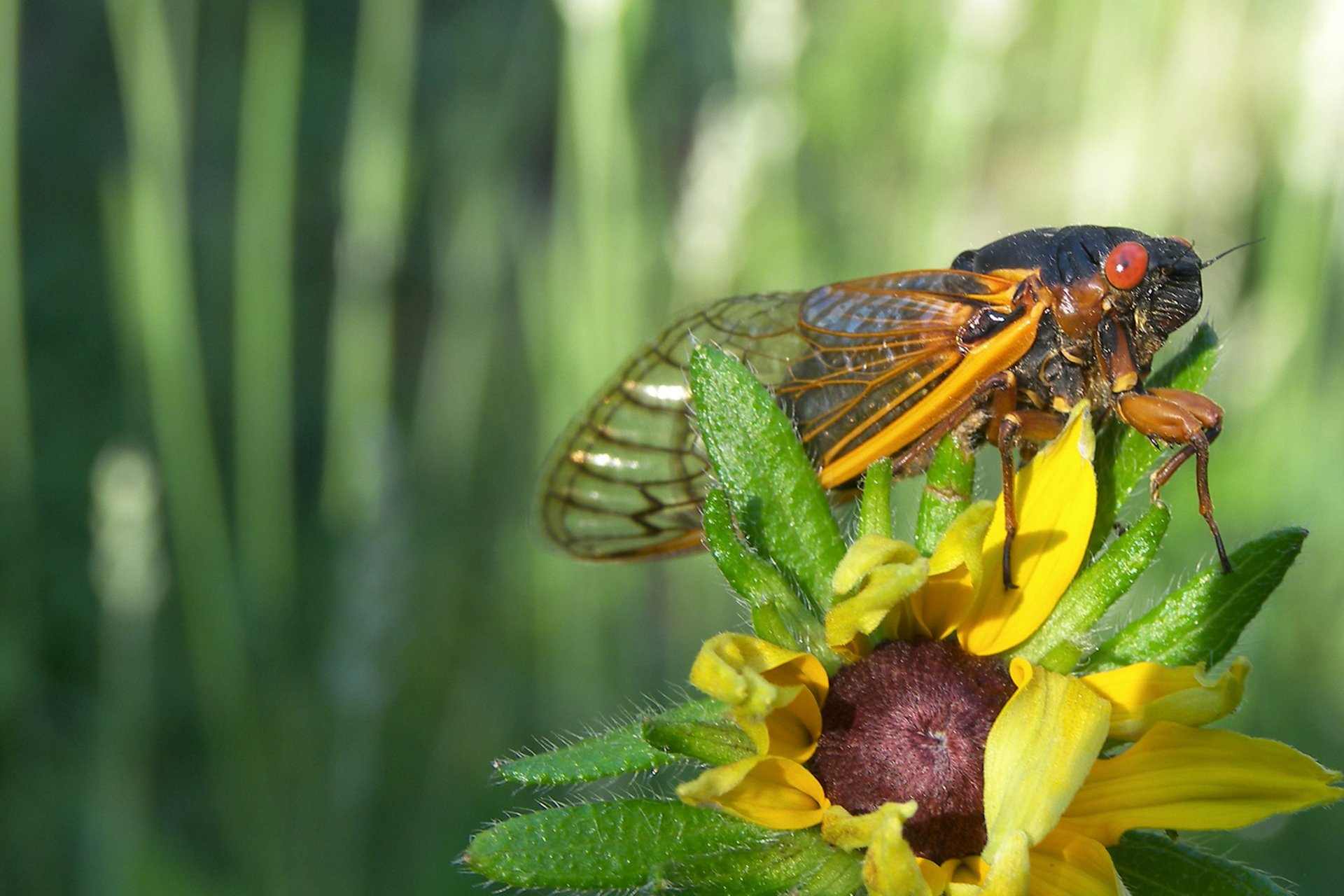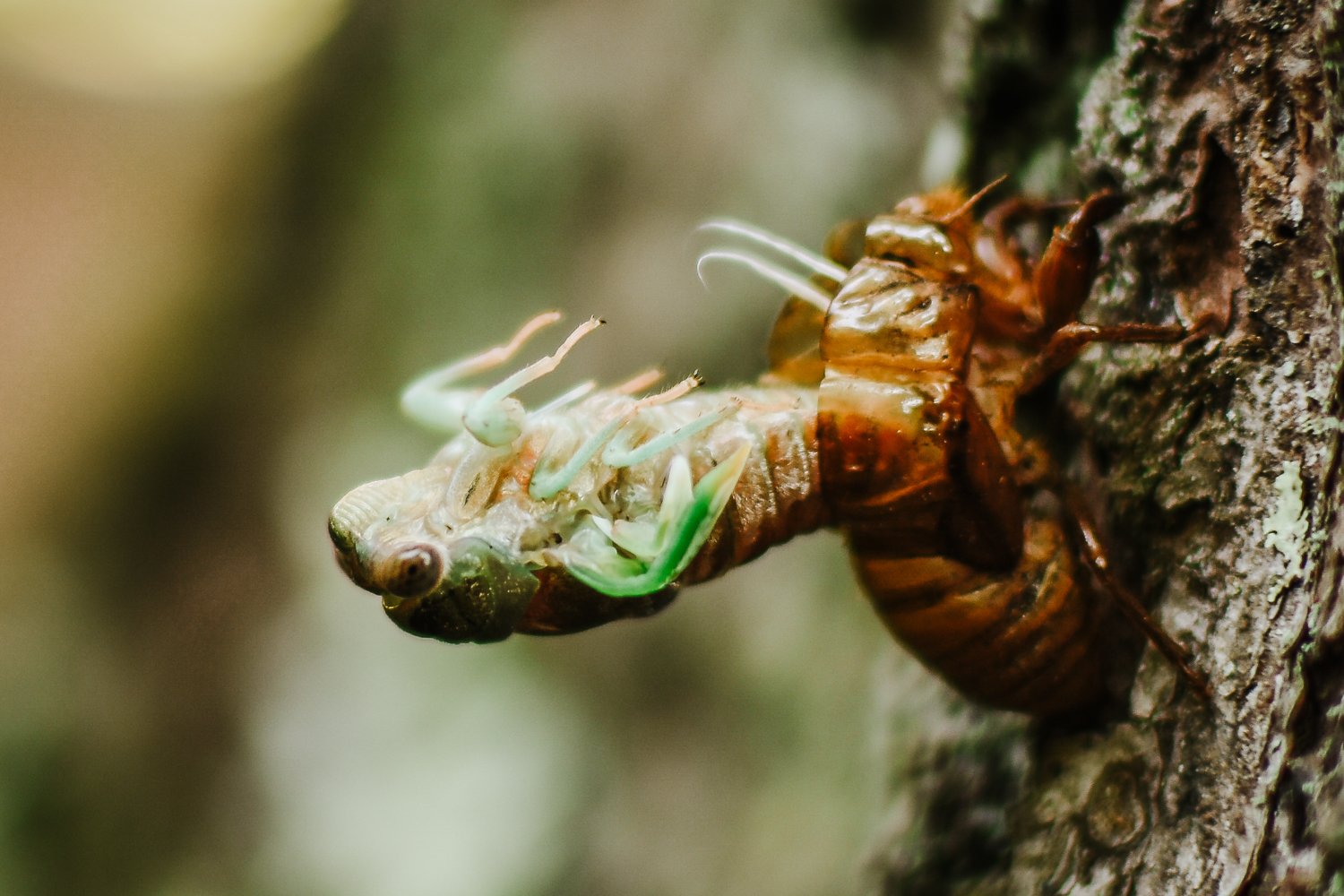People are buzzing with excitement about the return of the 17-year periodical cicada brood in Massachusetts this summer—and for good reason!
Brood XIV Cicadas, the only periodical cicada found in Massachusetts, have been underground for the last 17 years. But their big debut is right around the corner.
How Do Cicada Broods Work?
Cicadas can have either annual or periodical life cycles. Annual cicada broods emerge every year or two in Massachusetts. Of the eight annual cicadas found here, the most common cicada species in Massachusetts is the “Dog Day” cicada. Periodical cicadas live out longer 13- or 17-year life cycles.
For both cicada types, the bulk of their time is spent underground growing and feeding on the juices of tree roots. After reaching mature nymph status, they travel to the surface and attach themselves to tree trunks. Their skin then cracks open on their backs and fully mature adults emerge to make noise, breed, lay eggs, and start the whole cycle over again.
Are Cicadas Beneficial or Harmful?
Do not fear cicadas—they don’t bite, sting, or carry disease—and they do little lasting damage to plants. While their mass emergences can cause minor breakage to small tree branches where females lay eggs, this is sometimes considered a natural pruning process that may even benefit forest trees. However, if you’re concerned for young or newly planted trees, protect them with mesh netting during the cicada's brief adult stage.
Birds in particular benefit from these cicada booms, feasting on the protein-rich insects and often raising more chicks during emergence years thanks to the abundant food supply.
These periodical flyers often get confused with locusts, certain large grasshoppers that occur in crop-devastating swarms.
Where and When Will Cicada Brood XIV Emerge in Massachusetts?
Brood XIV covers a wide-ranging patchy swatch of the US, from Massachusetts and Long Island down to Kentucky and Northern Georgia. However, their Massachusetts concentration centers around Cape Cod and the Southeastern region.
Expected to emerge sometime in late May-early June 2025, this natural phenomenon is not to be missed, as the next brood won’t emerge again until 2042!
Upcoming Programs on Insects
See MoreWinter Walk at Arcadia
-
Arcadia Wildlife Sanctuary, Easthampton
-
Saturday, March 7
10:00am-12:00pm
Adults
Friday Night Hikes: Frozen Frogs, Fairy Shrimp, & Jellied Eggs
-
North River Wildlife Sanctuary, Marshfield
-
Friday, March 20
4:00-5:30pm
Families - children 0 - 17
Spring Nature Walk
-
Blue Hills Trailside Museum, Milton
-
Saturday, March 21
9:00-11:00am
Adults
First Fridays: Sounds of Spring
-
Museum of American Bird Art Education Center, Canton
-
Friday, April 3
6:30-8:00pm
Families - children 5 - 17
Friday Night Hikes: Blooming Flowers & Budding Trees
-
North River Wildlife Sanctuary, Marshfield
-
Friday, April 17
5:00-6:30pm
Families - children 0 - 17
Vernal Pools Are Hopping
-
Stony Brook Wildlife Sanctuary, Norfolk
-
Saturday, April 18
2:00-3:30pm
Families - children 6 - 17
Stay Connected
Don't miss a beat on all the ways you can get outdoors, celebrate nature, and get involved.




